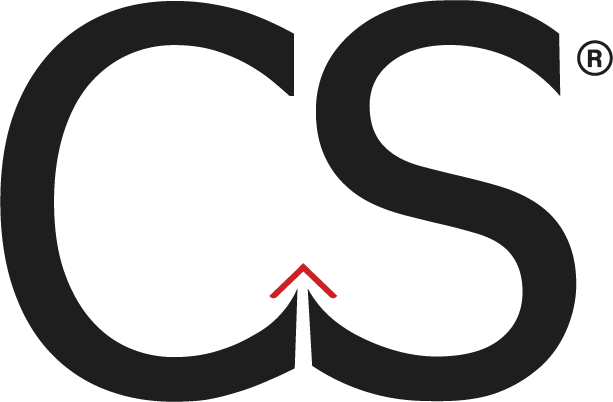Lenders often require personal and corporate guarantees as part of the broader securities package for a loan, especially if the loan amount is greater than the value of the collateral. For example, a lender may agree to loan a company $1 million to buy a building, but the building may be worth only $750,000. In this case, the lender would likely require a personal or corporate guarantee to cover the difference of $250,000.
In case of a default, the lender can take possession of the collateral and recover the loan amount. Covenants—A securities package can also include covenants, which are terms and conditions the borrower must follow. forex 1 hour trading strategy These may involve maintaining certain financial ratios or committing to not take on more debt. The credit score provided in CreditWise is a FICO® Score 8 based on TransUnion data. The FICO Score 8 gives you a good sense of your credit health but it may not be the same score model used by your lender or creditor.
What happens to your collateral if you can’t pay back a loan?
“American taxpayers will no longer be forced to serve as collateral for irresponsible student loan policies,” McMahon said. Julia Kagan is a financial/consumer journalist and former senior editor, personal finance, of Investopedia. Fourdegreewater Services Private Limited is the Stock broker entity operating in debt segment. It functions independently as an online bond platform provider in the debt segment. Using one’s home or any owned piece of property is the most common type of collateral.
- Of all the asset classes, loan against property had the most promising outlook.
- The definition of collateral is a valuable asset that a borrower pledges as security for a loan.
- To put it in clear terms, all collateral are assets, but not all assets are collateral.
- The best loans secured by collateral are typically available at substantially lower interest rates than unsecured loans.
- Therefore, some lenders may not be too keen on taking it, because it can be hard to find a buyer.
Again, though, some lenders may not like it because it can be difficult to sell. Kindly, read the Advisory Guidelines for investors as prescribed by the exchange with reference to their circular dated 27th August, 2021 regarding investor awareness and safeguarding client’s assets. Whatever kind of loan or the amount you require, make sure to have a repayment plan in place to avoid heavy consequences of a default. These are generally used by small businesses, the outstanding and unpaid invoices given to customers of the business are used as collateral for financing. “Determining the order of events and who has access first and to which assets becomes a legal matter,” Rivest says.
Cons of collateral loans
This is probably the most basic example and there are a lot of processes that follow. “If there’s a shortfall and we can’t fully cover the loan amount based on the collateral, then we would look at a guarantee to cover the difference,” Fruehm says. Anything that a lender is financing, if it has value, it is most likely part of the securities package and therefore becomes the collateral.
Types of Collateral
As well as being used in the matter of loans, collateral in finance is also a thing. For instance, a collateralised debt obligation or CDO is a kind of security which collects assets that repositions them into distinct groups that can then be bought by investors. The pooled assets then become debt obligations, serving as collateral for the CDO. Collateral guarantees a loan, so it needs to be an item of value.
Collateral isn’t the same as security
The collateral for term and demand loans is usually the asset being financed. For an operating loan (also known as a line of credit), which is used to finance day-to-day expenses, the company’s accounts receivable and inventory typically represent the collateral. Other lenders (including BDC) use personal guarantees as security for loans. They do not as a rule list any specific assets in the guarantee. “Such a personal guarantee is a moral commitment to repay the loan,” Rivest says. Business loans, which can be used for things like buying equipment or funding company projects, are another type of loan that may require collateral.
Investments
- If the proceeds don’t cover the outstanding loan balance, the lender then typically looks to the personal or corporate guarantee to cover the difference.
- The guarantee could include a specific asset that is pledged as collateral.
- These are generally used by small businesses, the outstanding and unpaid invoices given to customers of the business are used as collateral for financing.
- All content on this website, including dictionary, thesaurus, literature, geography, and other reference data is for informational purposes only.
A business that obtains financing from a bank may pledge valuable equipment or real estate owned by the business as collateral for the loan. In the event of a default, the lender can seize the collateral and sell it to recoup the loss. Other nonspecific personal loans can be collateralized by other assets. For instance, a secured credit card may be secured by a cash deposit for the same amount of the credit limit—$500 for a $500 credit limit. This is the reason loans with collateral are called secured loans.
Collateral acts as security for lenders, so this type of loan often has better interest rates than unsecured loans as there is, at least in theory, less risk involved. If someone borrows money with a credit card, there often isn’t any collateral, so the interest rate is likely to be significantly higher than with a mortgage or personal loan. If you compare different types of loans, you might notice that secured loans like mortgages and car loans often have lower rates than unsecured loans and credit cards. The best loans secured by collateral are typically available at substantially lower interest rates than unsecured loans. A lender’s claim to a borrower’s collateral is called a lien—a legal right or claim against an asset to satisfy a debt.
If you have new credit or poor credit, secured credit cards might be easier to qualify for than unsecured cards. And with responsible use, a secured card can help you build or rebuild your credit history. With these types of loans, a cash deposit is used as collateral to open the account. The nature of the collateral is often predetermined by the loan type. When you take out a mortgage, your home becomes the collateral. If you take out a car loan, then the car is the collateral for the loan.
While you’re thinking about loans, it may help to review your credit scores and credit reports to better understand your financial standing. Keeping collateral can help minimise the amount of risk lenders take on, because they will have something which could, at least in theory, cover their costs. Likewise, it can help a borrower focus on paying back the money they owe. Due to this, lenders may be willing to provide you with a higher amount of loan money. However, this would also depend on the intrinsic value of the collateral offered.
Let’s say Ram wants to borrow some money and approaches an NBFC for the same (NBFC give out loans to individuals). The NBFC agrees to give him a loan, but says that he needs to provide a collateral as a security against the loan. In case, Ram is unable to pay off the money, the gold can be sold to recover the amount.


